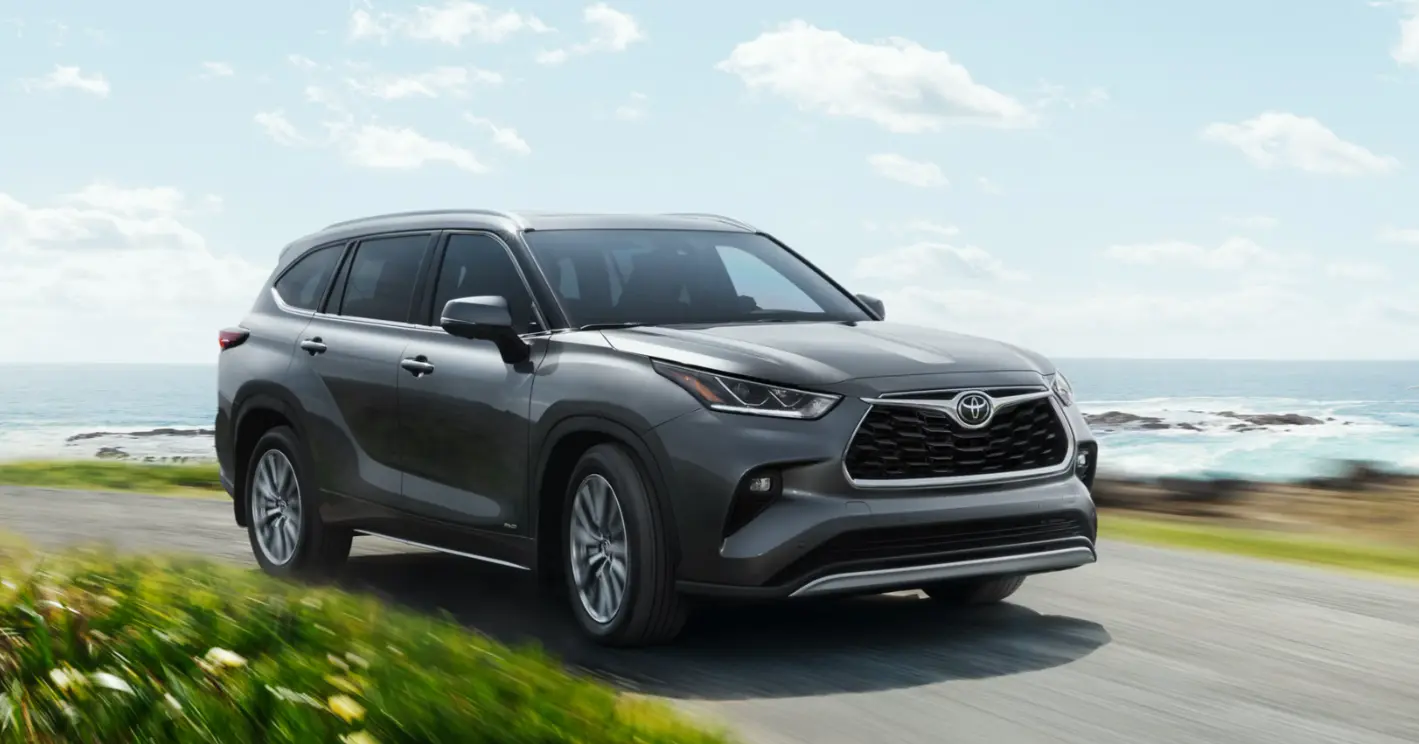
Say Goodbye to Gas Guzzlers: Top 8 Fuel-Efficient Midsize SUVs Worth Buying in 2025
Worried about rising gas prices but still need the space and versatility of an SUV? You’re in luck! The 2025 market is packed with fuel-efficient midsize SUVs that let you haul your family, gear, and groceries without constantly stopping at the pump.
🔍 Quick Takeaways: What You’ll Learn
- The Best of the Best: Discover our top picks for the most fuel-efficient midsize SUVs in 2025, from reliable hybrids to innovative plug-in hybrids (PHEVs).
- Hybrid vs. PHEV vs. Gas: Understand the key differences between powertrain options to choose the right one for your lifestyle and driving habits.
- Beyond MPG: Learn what other crucial factors to consider, like long-term maintenance costs, resale value, and available tax incentives.
- Smart Shopping Tips: Get expert advice on how to find the perfect balance between fuel economy, features, and price.
Why Fuel-Efficient Midsize SUVs are Dominating the Road
Let’s face it—the traditional, gas-guzzling SUV is becoming a relic of the past. Today, families want it all: ample passenger and cargo room, modern tech, safety, and most importantly, great gas mileage. Automakers have responded with a fantastic lineup of hybrid and plug-in hybrid models that sip fuel instead of chugging it.
Choosing a fuel-efficient midsize SUV isn’t just about saving money; it’s about making a smarter, more sustainable choice without sacrificing the practicality your life demands. Imagine tackling your daily commute, weekend road trips, and school runs all while visiting the gas station less than ever before. That’s the promise of these modern vehicles.
Our Ranking: The 8 Most Economical SUVs for 2025
After extensive research and comparison, we’ve ranked the top contenders. We’ve looked at their EPA-estimated mileage, powertrain technology, price, and overall value to bring you this definitive list.
1. Kia Sorento Hybrid & PHEV
The Kia Sorento stands out for offering both a traditional hybrid and a plug-in hybrid option, making it incredibly versatile. It’s stylish, packed with tech, and offers three rows of seating—a rare find in this efficient class.
- Powertrain Options:
- Hybrid (HEV): 1.6L Turbocharged 4-Cylinder. Delivers an impressive 37 MPG combined.
- Plug-in Hybrid (PHEV): Same engine with a more powerful electric motor. Offers 32 miles of all-electric range and a combined 79 MPGe.
- Starting Price (Est.): Around $38,000 for the Hybrid.
- Why It’s a Winner: The Sorento PHEV is a game-changer. You can handle most daily driving on purely electric power, effectively turning your SUV into an EV for short trips. Plus, Kia’s industry-leading 10-year/100,000-mile warranty adds priceless peace of mind.
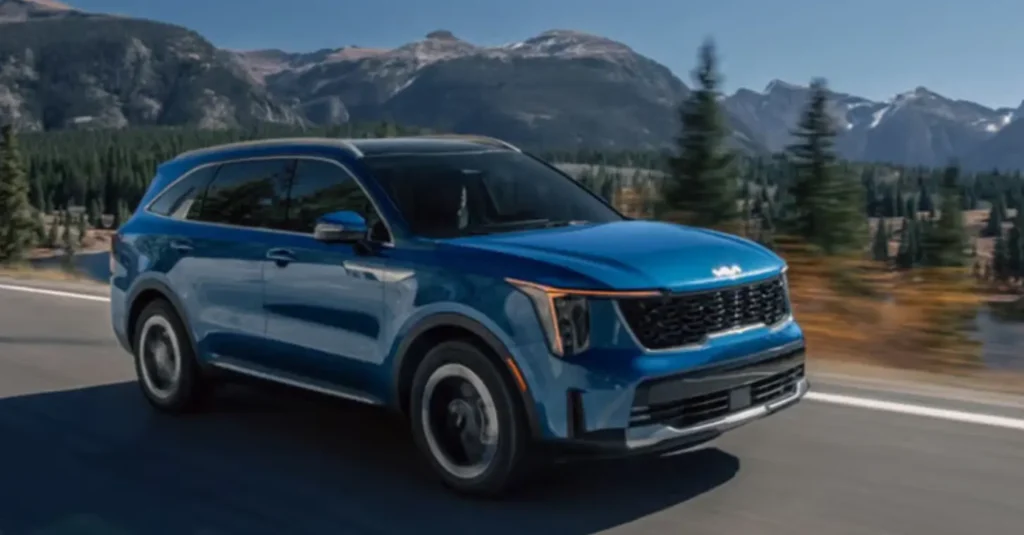
2. Hyundai Santa Fe Hybrid
Redesigned for 2024 and carrying into 2025, the Hyundai Santa Fe now sports a bold, boxy look and a more spacious, upscale interior. It shares its excellent hybrid powertrain with its Kia cousin, making it another top choice among the best hybrid SUVs.
- Powertrain: 1.6L Turbocharged 4-Cylinder Hybrid.
- Fuel Economy: Expect a solid 34 MPG combined.
- Starting Price (Est.): Around $37,500.
- Why It’s a Winner: The Santa Fe’s redesign prioritizes practicality. Its new, larger liftgate and flatter-folding seats create a massive, versatile cargo area perfect for camping gear or trips to the hardware store. It feels more premium than its price tag suggests.
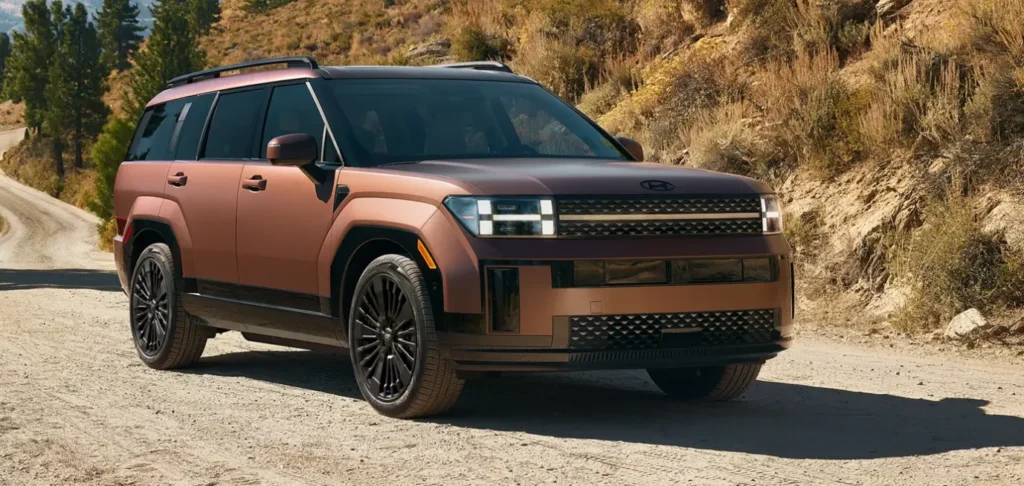
3. Toyota Highlander Hybrid
When you think of reliability, you think of Toyota. The Highlander Hybrid has been a leader in this segment for years, and it continues to be a go-to choice for families seeking dependability and stellar fuel economy.
- Powertrain: 2.5L 4-Cylinder Hybrid.
- Fuel Economy: An outstanding 36 MPG combined.
- Starting Price (Est.): Around $42,000.
- Why It’s a Winner: The Highlander Hybrid’s reputation is built on a rock-solid foundation. While it may not be the flashiest SUV, its smooth ride, quiet cabin, and impeccable long-term value are hard to beat. It’s the definition of a smart, sensible family vehicle.
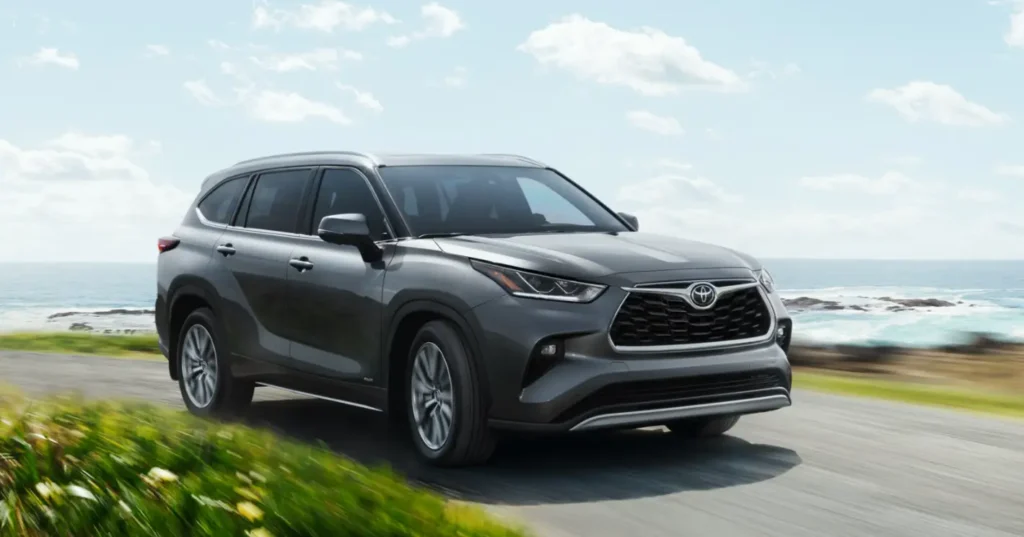
4. Honda CR-V Hybrid
While technically on the larger end of the compact segment, the Honda CR-V’s spacious interior and cargo hold allow it to compete effectively with many midsize models. For 2025, its hybrid variants are the star of the show.
- Powertrain: 2.0L 4-Cylinder Hybrid.
- Fuel Economy: An excellent 40 MPG combined for FWD models.
- Starting Price (Est.): Around $34,500 for a hybrid trim.
- Why It’s a Winner: The CR-V Hybrid delivers a fun and engaging driving experience that many rivals lack. Its powertrain is responsive and smooth, making it feel peppy around town. It’s a fantastic choice if you want efficiency without sacrificing driver enjoyment.
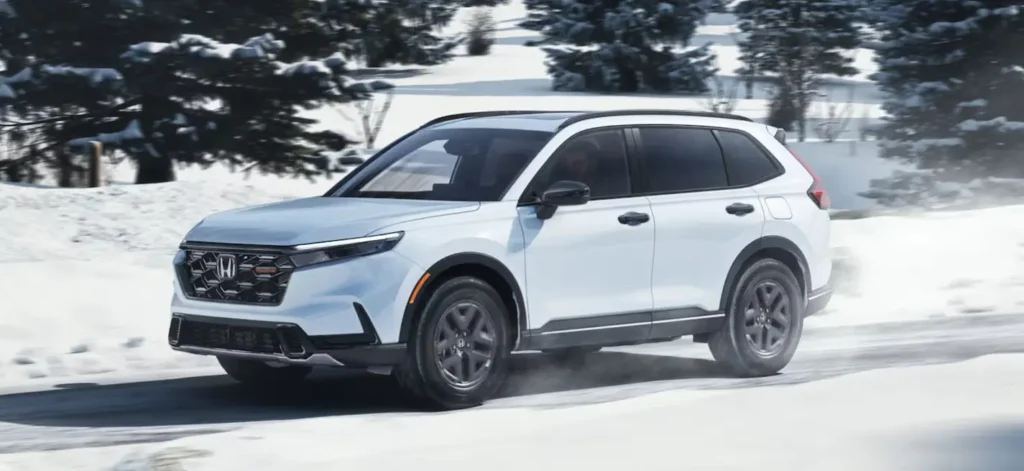
5. Toyota Grand Highlander Hybrid
Need more space than the standard Highlander? Toyota’s answer is the Grand Highlander. It’s bigger in every dimension, offering a truly adult-friendly third row and massive cargo capacity, all while maintaining incredible fuel efficiency.
- Powertrain Options:
- Standard Hybrid: 2.5L 4-Cylinder Hybrid with 36 MPG combined.
- Hybrid MAX: A powerful 2.4L Turbocharged Hybrid with 362 horsepower, still getting 27 MPG combined.
- Starting Price (Est.): Around $46,000.
- Why It’s a Winner: The Grand Highlander solves the classic three-row SUV problem: a cramped third row. Here, adults can actually sit comfortably in the back. The Hybrid MAX option is particularly compelling, offering V6-like power with four-cylinder efficiency.
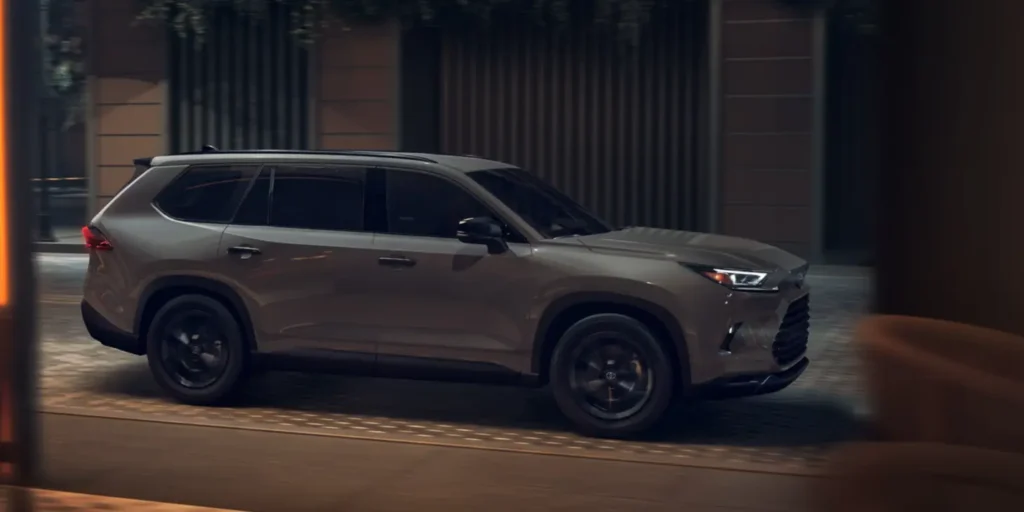
6. Lexus TX Hybrid
For those wanting a touch of luxury with their efficiency, the Lexus TX is a newcomer that shares its platform with the Grand Highlander. It wraps that practicality in a premium package with Lexus’s signature refinement and comfort.
- Powertrain: The TX 500h F Sport Performance model features a potent turbo-hybrid setup.
- Fuel Economy: A respectable 27 MPG combined, impressive for its size and power.
- Starting Price (Est.): Around $60,000.
- Why It’s a Winner: It’s a luxury three-row SUV that doesn’t force you to compromise on fuel economy. The interior is whisper-quiet, the materials are top-notch, and the ride is exceptionally smooth. It’s the perfect vehicle for long-distance family road trips in total comfort.
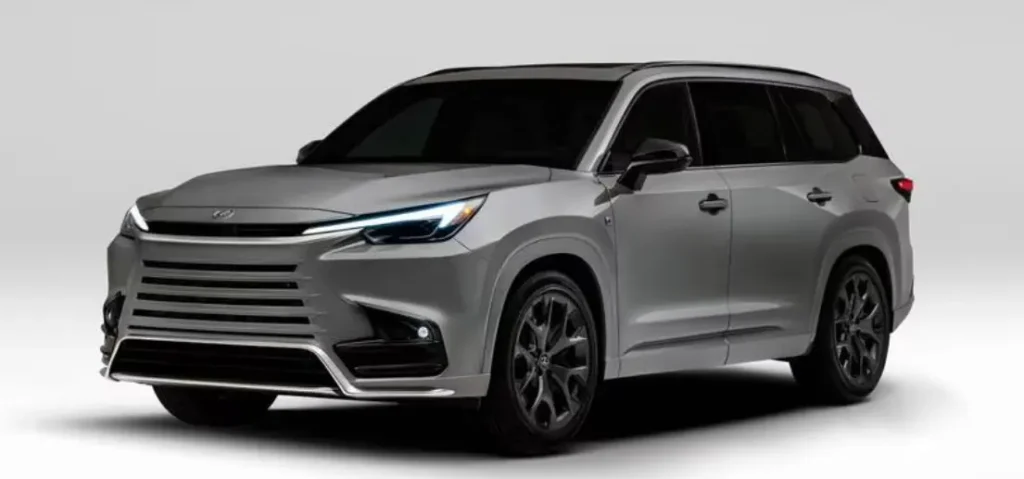
7. Ford Explorer Hybrid
The Ford Explorer is an American icon, and its hybrid version brings modern efficiency to a classic nameplate. It’s one of the few hybrids in its class with a focus on towing and rear-wheel-drive dynamics.
- Powertrain: 3.3L V6 Hybrid.
- Fuel Economy: Up to 27 MPG combined.
- Starting Price (Est.): Around $53,000.
- Why It’s a Winner: Towing capacity. The Explorer Hybrid can tow up to 5,000 pounds, making it a great choice for families who need to haul a small boat or camper. Its rear-wheel-drive-based platform also gives it more athletic handling than many front-wheel-drive competitors.
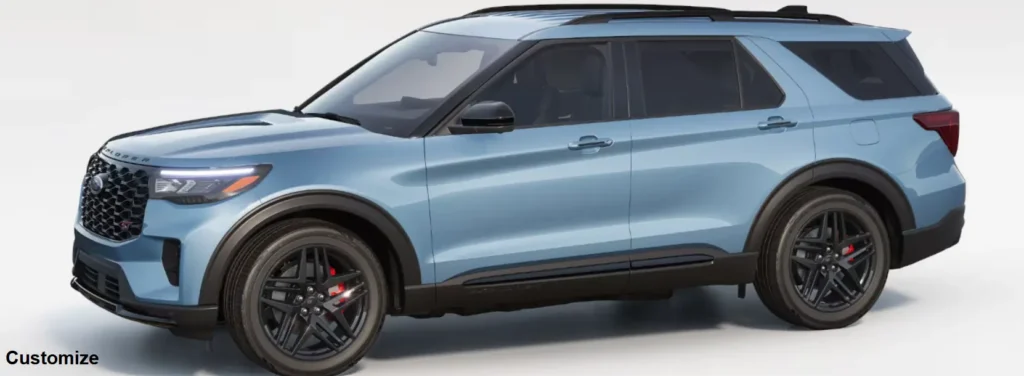
8. Mazda CX-90 PHEV
Mazda jumped into the premium space with the all-new CX-90, and its plug-in hybrid version is a standout. It combines elegant design, a driver-focused interior, and an efficient powertrain.
- Powertrain: 2.5L 4-Cylinder Plug-in Hybrid.
- Fuel Economy: Offers 26 miles of electric range and a combined 56 MPGe.
- Starting Price (Est.): Around $49,000.
- Why It’s a Winner: Driving dynamics. Mazda builds cars for people who love to drive, and the CX-90 is no exception. It feels agile and composed, with precise steering that makes it feel smaller than it is. It’s a fuel-efficient midsize SUV that doesn’t forget the driver.
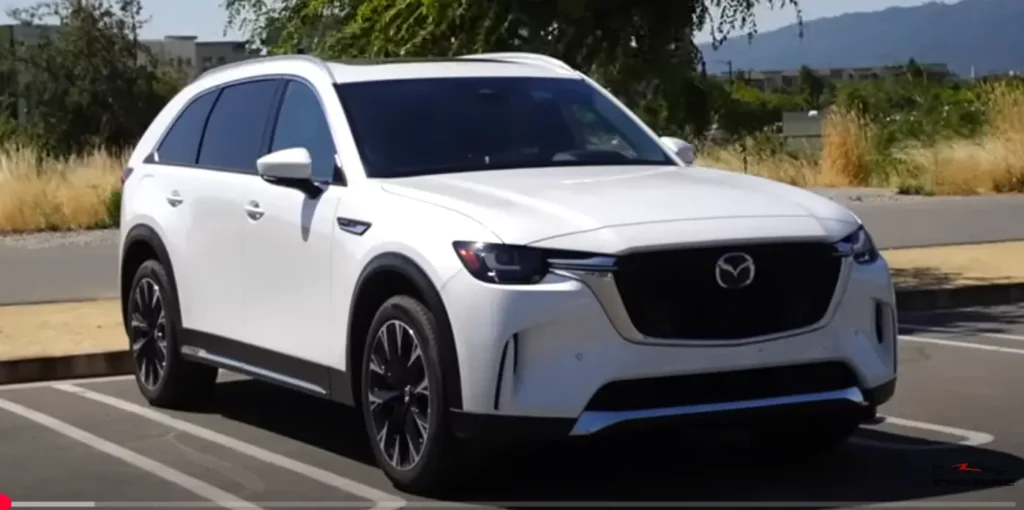
Beyond MPG: What Else to Consider
Choosing the right SUV isn’t just about the number on the window sticker. Here are some other factors to weigh:
- Maintenance: Hybrid systems are incredibly reliable, but be aware that certain repairs (like a battery replacement far down the line) can be more expensive than on a traditional gas car. However, you’ll save on things like brake wear, as hybrids use regenerative braking.
- Resale Value: Brands like Toyota and Honda are famous for their high resale value. This means you’ll get more of your money back when it’s time to sell, lowering your total cost of ownership.
- Tax Credits: Plug-in hybrids (PHEVs) may be eligible for federal or state tax credits, which can significantly reduce the purchase price. Check the latest government guidelines to see which models qualify.
- Your Driving Habits:
- City Driver? A standard hybrid (HEV) is perfect. It recharges itself in stop-and-go traffic, maximizing your MPG.
- Short Commute? A plug-in hybrid (PHEV) is a game-changer. If your daily round trip is less than its electric range (e.g., 30 miles), you might go weeks without using a drop of gas.
❓ Frequently Asked Questions (FAQs)
Are hybrid SUVs really worth the extra cost?
In most cases, yes. While they often have a higher upfront price, you’ll save thousands on fuel over the life of the vehicle. Combined with higher resale value and potentially lower maintenance (like brakes), they often have a lower total cost of ownership.
What’s the main difference between a hybrid (HEV) and a plug-in hybrid (PHEV)?
A standard hybrid (HEV) uses its electric motor to assist the gas engine and recharges its small battery through braking. You can’t plug it in. A plug-in hybrid (PHEV) has a much larger battery that you can charge by plugging it into the wall, allowing you to drive on pure electric power for a set range (usually 25-40 miles) before the gas engine kicks in.
Do I need a special charger for a PHEV?
No, you don’t! All PHEVs can be charged using a standard 120V household outlet (Level 1). It’s slower but works perfectly for overnight charging. For faster charging, you can have a 240V outlet (Level 2) installed, similar to an electric dryer outlet.
How long do hybrid batteries last?
Hybrid batteries are designed to last the lifetime of the vehicle. All manufacturers in the U.S. are required by law to warranty hybrid battery packs for at least 8 years or 100,000 miles, and some, like Hyundai and Kia, extend that to 10 years.
The Road Ahead
Choosing one of these fuel-efficient midsize SUVs is a smart decision for both your wallet and your peace of mind. You get the space, safety, and features your family needs without the pain at the pump. From the versatile Kia Sorento to the ultra-reliable Toyota Highlander, there’s a perfect fit for every lifestyle.
Our best advice? Narrow down your top two or three choices from this list and schedule a test drive. Experiencing how they feel on the road is the final, most important step in finding the perfect SUV for you. Happy driving!


